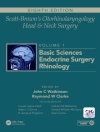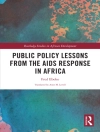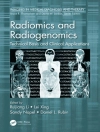This book comprehensively addresses the use of pulmonary function measurement for the evaluation, screening and timing of noninvasive mechanical ventilation (NIMV) from hospital to home care. To do so, it describes three clinical stages of NIMV support: before NIV, to detect early markers and determine whether NIV is appropriate; during NIV, to evaluate NIV response; and in long-term NIV support.
Additionally, it assesses a range of complementary health care organizations (pulmonary function labs, pneumology wards, semi-intensive care units and home mechanical ventilation programs), techniques (chest physiotherapy/airway secretions, etc.) and applications.
In closing, the book offers practical recommendations on how noninvasive ventilation and lung function measurement can improve outcomes and quality of life, making it a valuable resource for all specialists, e.g. intensivists and pneumologists, as well as anesthesiologists and therapists.
Innehållsförteckning
Part -I Noninvasive ventilation – Basic Physiology and pulmonary function measurements.- Chapter 1. Spontaneous Breathing Physiology.- Chapter 2. Dyspnea, pathophysiology in acute and chronic respiratory failure.- Part II. Noninvasive ventilation – Pulmonary Function Measurements: Classification, Screening Test and Questionnaires.- Chapter 3. Diaphragm function Pulmonary function testing.- Chapter 4. Respiratory Accessory Muscle Function Of Inspiratory Expiratory, And Bulbar Muscles.- Chapter 5. Evaluation of Peripheral Airways.- Chapter 6. Lung Compliance Measurement.- Chapter 7. Evaluation of pressure, volume and flow waveforms during NIV.- Chapter 8. Cough evaluation – measurement and scores.- Chapter 9. Gas Exchange.- Chapter 10. Biomarkers and Pulmonary Function Test.- Part III. Are there any specific clinical noninvasive ventilation indications and pulmonary Function Measurement?.- Chapter 11. Dyspnea during non-invasive ventilation implications for respiratory function.- Chapter12. Pulmonary Function in Rare Pulmonary Diseases.- Chapter 13. Chronic neuromuscular disorders.- Chapter 14. Continuous non- invasive ventilator support (neuromuscular disorders).- Chapter 15. Chest Wall Disorders.- Chapter 16. Chronic obstructive and cystic fibrosis respiratory disorders.- Chapter 17. Should NPPV be used for respiratory management of asthma attacks?.- Chapter 18. Obesity hypoventilation syndrome.- Chapter 19. Obstructive Sleep Apnea Sleep- Disordered Breathing.- Chapter 20. Chronic heart failure.- Chapter 21. Respiratory Physiotherapy and Pulmonary Rehabilitation.- Chapter 22. High risk population, elderly and chronic critically ill patients.- Chapter 23. Hypoxemic Respiratory Failure – VILI.- Chapter 24. Pulmonary function-NIV. Cardiac, thoracic and abdominal surgery.- Chapter 25. Pulmonary function-NIV -Traumatic Cervical spinal cord injury, neurosurgery and non traumatic neurologic.- Chapter 26. Assessment-right ventricular function-Pulmonary hypertension.- Part IV. Lung Function Measurement in Noninvasive Ventilation Are there any impact of implementation?.- Chapter 27. Equipment For Pulmonary Function Evaluation Device And Technology.- Chapter 28. Oxygen Supplementation – High Flow Nasal Oxygen.- Chapter 29. Negative and Positive Non-Invasive Pressure Ventilation.- Chapter 30. Interface, mouthpiece, nasal face /alternative interface.- Chapter 31. Non Invasive Ventilation (NIV): timing, screening and follow-up.- Chapter 32. Ventilatory Modes: Neurally adjusted ventilatory assist (NAVA)/ Pressure support ventilation/ Bi-PAP mode/ Continuous positive airway pressure.- Chapter 33. Patient-ventilator interaction.- Chapter 34. Noninvasive ventilation failure.- Chapter 35. Pharmacology treatments and pulmonary function tests.- Part V. Are there any implications of Lung Function Measurement and Health Care Organization in Noninvasive ventilation?.- Chapter 36. Pulmonary function tests in hospitalized patients/ setting (specialized respiratorycare, high dependency/ intensive care unit).- Chapter 37. From hospital to home care-discharge.- Chapter 38. Home Care Ventilator-Dependent Patients.- Chapter 39. Home Non-Invasive Ventilation: Lung Function Tests And Telemedicine.- Part VI. Relationships Non invasive ventilation-Lung Function Measurement. In Outcome and Quality-of-Life.- Chapter 40. Pulmonary Function testing – Predictors and Readmissions.- Chapter 41. Quality of life in acute critically.- Chapter 42. Quality of life in chronic obstructive pulmonary diseases.- Chapter 43. Quality of life in neuromuscular disorders.- Chapter 44. Relationship pulmonary function testing – emotional psychosocial factors.- Part VII. Noninvasive ventilation- Pulmonary Function Testing Guidelines.- Chapter 45. Evidence-based recommendations pulmonary functions measurement and outcomes.
Om författaren
Antonio M. Esquinas is critical care specialist and staff physician in the Intensive Care Unit at the Hospital Morales Meseguer, Murcia. Spain. He is an active member and International fellow of the American Association Respiratory Care (AARC), fellow of the American Collage Chest Physicians (ACCP) and Director of the International School of Non Invasive Ventilation, International Fellowship program of non-invasive ventilation, president of the International Association of Non Invasive Ventilation and International College of Non Invasive Ventilation Experts. His main research activities are related to noninvasive mechanical ventilation in pulmonary and critical care. He is the author of more than 50 books (in English, Portuguese, Spanish and translated in Chinese), numerous articles (662) and chapters (180) and has actively participated in international meetings related to education and research on non-invasive ventilation.












